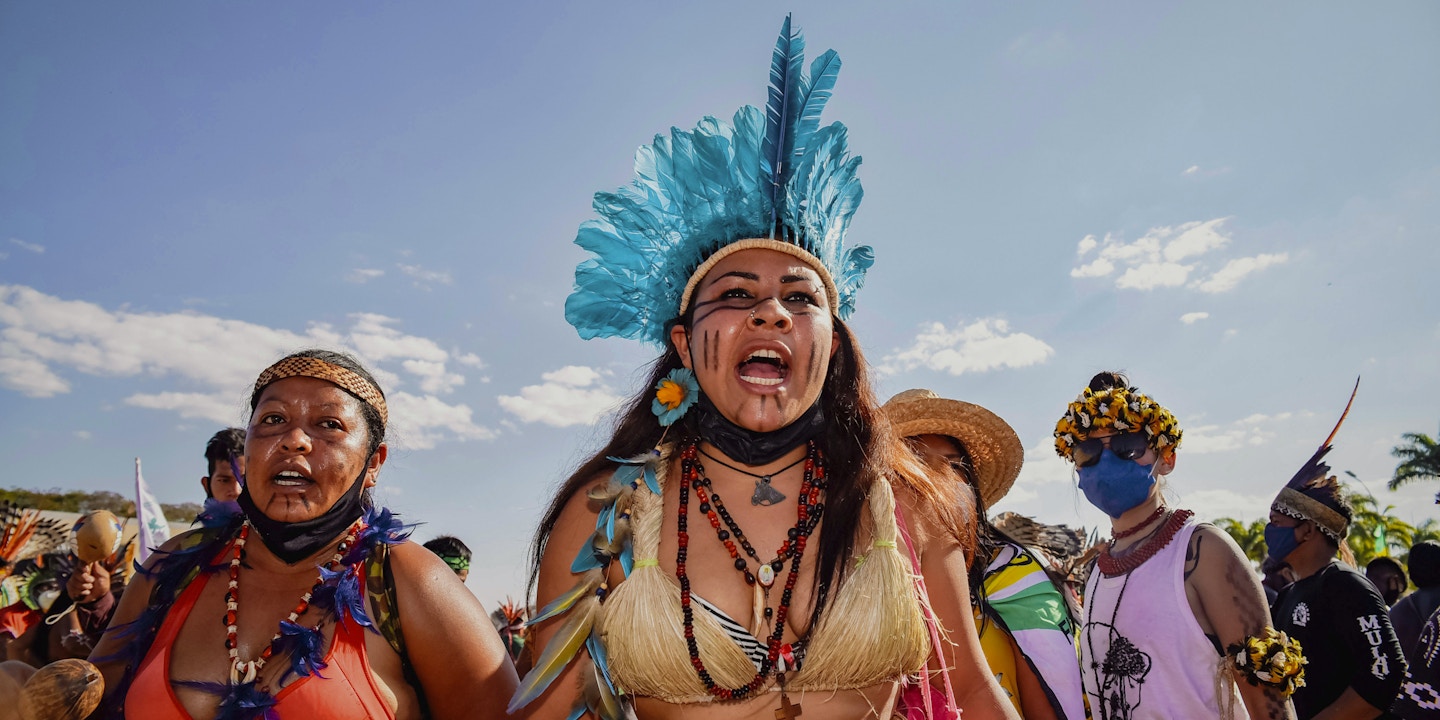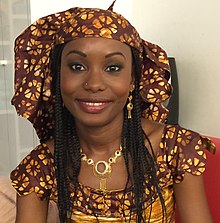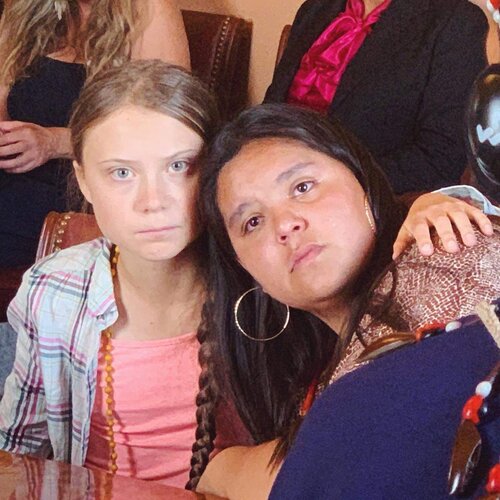‘Amazing!’ Lula Applauded for Naming Amazon Defenders as Brazilian Ministers

Dec 31, 2022 – Jessica Corbett – Common Dreams
Environmentalists and rights advocates around the world are celebrating Brazilian President-elect Luiz Inácio Lula da Silva’s selection of Marina Silva and Sônia Guajajara to serve as the nation’s environment and Indigenous ministers, respectively.
Lula, who is set to be sworn in Sunday after defeating right-wing President Jair Bolsonaro in an October runoff, confirmed the appointments Thursday, sparking a flood of applause and hope about what they signal for the leftist leader’s return to office. Read all about it here!
BRAZIL’S INDIGENOUS GROUPS MOUNT UNPRECEDENTED PROTEST AGAINST DESTRUCTION OF THE AMAZON
Andrew Fishman – August 28 2021 – The Intercept

INDIGENOUS COMMUNITIES IN Brazil organized the largest-ever native protests to block what they described as “a declaration of extermination” from lawmakers representing agribusiness, mining, and logging interests aligned with far-right President Jair Bolsonaro.
Hindou Oumarou Ibrahim

An environmental activist and geographer, She is the Coordinator of the Association of Peul Women and Autochthonous Peoples of Chad (AFPAT) and served as the co-director of the pavilion of the World Indigenous Peoples’ Initiative and Pavilion at COP21, COP22 and COP23.
In 2016, Ibrahim was selected to represent civil society at the signing of the historic Paris Climate Agreement on April 22, 2016.[12] In her statement at the signing, she noted: “Climate change is adding poverty to poverty every day, forcing many to leave home for a better future.”[13] In 2019, she became one of the 17 people to be appointed as a advocate of Sustainable Development Goals[14] by the United Nations.[15

XIYE BASTIDA — Xiye Bastida (born 18 April 2002) is a Mexican-Chilean climate activist and member of the indigenous Mexican Otomi–Toltec nation. She is one of the major organizers of Fridays for Future New York City and has been a leading voice for indigenous and immigrant visibility in climate activism.[2] She is on the administration committee of the People’s Climate Movement and a member of Sunrise Movement and Extinction Rebellion.She is co-founder of Re-Earth Initiative, an international non for profit organization that is inclusive and intersectional “just as the climate movement should be.”

NEMONTE NENQUIMO – Waorani leader and president of the Waorani Organization of Pastaza
QUITO, Ecuador — It was a historic moment in April of 2019. Dozens of Indigenous Waorani plaintiffs filled a small courtroom in Ecuador’s Amazon city of Puyo, many of them carrying long spears and wearing traditional red face paint and feathered headbands, but all of them smiling and cheering for joy. A three-judge panel had just ruled in favor of the community in their lawsuit against the government, which immediately cancelled government plans to sell their territory in the Amazon rainforest to the highest-bidding oil company.
Time magazine recognized this struggle by including Nemonte Nenquimo, one of the Waorani women leaders at the head of the lawsuit, in its list of the 100 most influential people of 2020.

NINA GUALINGA — Nina Gualinga (born June 1993)[1] is an Ecuadorian environmental and indigenous rights activist. She is part of the Kichwa-speaking community and has spent most part of her life advocating for better environmental protection of the Ecuadorian Amazon and the inhabitant wildlife as well as the people who are dependent on this environment
Cartagena, 8 May 2018 – Nina Gualinga, an indigenous woman leader of the Kichwa community of Sarayaku in the Ecuadorian Amazon, is the recipient of this year’s WWF International President’s Youth award.
Tokata Iron Eyes on why the climate movement needs to listen to Indigenous voices
– Tess Thomas | November 18, 2020- assembly.malala.org

At 9 years old, Tokata testified against a uranium mine in the sacred Black Hills. At 12, she helped lead a Standing Rock Youth campaign opposing the construction of the Dakota Access Pipeline through the Missouri and Cannonball Rivers and raising awareness about the impact of the pipeline on their water and land. Last year, she invited Greta Thunberg to her school where they spoke about the proposed Keystone XL pipeline and together later led a climate rally and march in Rapid City, South Dakota.
5 more Indigenous youth activists to follow
INDIA LOGAN-RILEY, NEW ZEALAND “Climate change is an outcome of colonization, which has removed Indigenous communities’ ability to defend the land and the water.”
EMMANUELA SHINTA, INDONESIA “We can choose if we want to be victims. But no, we want to be heroes. We want to be the ones who stand for our people.”
ROSARIO L. PEREZ, GUAM “Landscapes and humans are not interrelated; they are proponents of each other.”
BERTHA ZÚÑIGA CÁCERES, HONDURAS “I was born into a people of great dignity and of great strength. And my mother, Berta Cáceres, instilled upon us from a very young age that the struggle is rooted in dignity and that we must continue forward defending the rights of our people.”
XIUHTEZCATL MARTINEZ, U.S. – climate activist and hip-hop artist of Aztec descent,
My generation’s losing sight of the magic I feel,
Plagued by insecurities, slit wrists, bottles of pills;
Forgot the beauty of life, tell yourselves you’d rather die
Than use every time you fell as a step towards the sky.
–Lyrics from Magic Ft. Tru
The effects of climate change on indigenous peoples –
Indigenous peoples and the role they may play in combating climate change are rarely considered in public discourses on climate change. The United Nations Permanent Forum on Indigenous Issues, is well placed to support indigenous peoples in putting a “human face” on this issue.
United Nations Declaration on the Rights of Indigenous Peoples
(UNDRIP) was adopted by the General Assembly on Thursday, 13 September 2007, by a majority of 144 states in favour, 4 votes against (Australia, Canada, New Zealand and the United States) and 11 abstentions (Azerbaijan, Bangladesh, Bhutan, Burundi, Colombia, Georgia, Kenya, Nigeria, Russian Federation, Samoa and Ukraine).
Years later the four countries that voted against have reversed their position and now support the UN Declaration. Today the Declaration is the most comprehensive international instrument on the rights of indigenous peoples. It establishes a universal framework of minimum standards for the survival, dignity and well-being of the indigenous peoples of the world and it elaborates on existing human rights standards and fundamental freedoms as they apply to the specific situation of indigenous peoples.